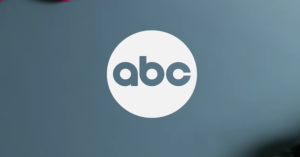Rock legend Neil Young ended his lawsuit against President Donald Trump for using his songs “Rockin’ in the Free World” and “Devil’s Sidewalk” at a campaign rally during the summer. Young filed papers to have the copyright case dismissed on Monday, according to The Hollywood Reporter. Young filed to dismiss with prejudice, a sign that a settlement could be reached, although the lawyers involved have not commented. Trump was set to respond to Young’s claims on Monday.
Young filed the lawsuit in August, accusing Trump’s campaign of not having the performance license to play those two songs at his rally. The “Old Man” singer has long been a critic of Trump and his policies, and almost sued Trump in 2016. He did not though, as he was told the campaign venues received public performance licenses from performance rights organizations ASCAP and BMI. Since then, the two organizations put limits on political music, which led to several artists suing and publicly complaining about Trump’s use of their music during his failed re-election campaign.
Videos by PopCulture.com
On July 4, Trump used “Rockin’ in the Free World” and “Like a Hurricane” at a rally at Mount Rushmore in South Dakota. As a longtime advocate for the rights of Native Americans, Young told fans on Twitter this was “not OK with me.” He later said he stands “in solidarity with the Lakota Sioux.”
Trump is also involved in a lawsuit over the use of Eddy Grant’s “Electric Avenue” in a campaign video, which involves another type of music license. Grant filed a copyright lawsuit against Trump in New York court. Trump’s team argued that it could use the song on fair use grounds in November, THR reports. The campaign used the song in an animated commercial showing Joe Biden driving a train car behind a speeding Trump train.
In their motion, the Trump campaign argued that the video had a different point than “Electric Avenue.” They also argued that music fans would not opt to pay money for the video instead of the song itself, ignoring the licensing factor behind the lawsuit. “…It is utterly implausible that fans of Mr. Grant’s music, or pop music listeners in general, would opt to acquire the Animation in preference to the Song, in order to watch the Animation and thereby to hear the warped snippet of the Song accompanied Former VP Biden’s voiceover,” the motion read. “Therefore, the Animation does not affect — much less usurp — the market for the Song and does not offer a market substitute for the Song.”








